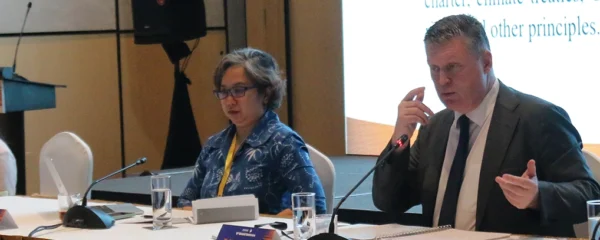
U.S. Department of Commerce Issues Final Determinations in Antidumping and Countervailing Duty Investigations of Solar Panels from Cambodia, Vietnam and other Southeast Asian Countries
April 24, 2025
On April 22, 2025, the U.S. Department of Commerce announced its final affirmative determinations in the antidumping duty (AD) and countervailing duty (CVD) investigations of crystalline silicon photovoltaic cells (solar panel cells) from Cambodia, Malaysia, Thailand, and Vietnam. For Cambodia, Commerce determined that imports of solar cells are being dumped into the U.S. market at an average rate of 125.37% and receiving countervailable subsidies at an extraordinarily high rate of 3,403.96%, notably including transnational subsidies from the Government of China. These findings mark a significant trade remedy action against Cambodia, with the U.S. International Trade Commission (ITC) scheduled to make its final injury determination by June 2, 2025. If the ITC confirms material injury to the U.S. industry, Commerce will impose AD and CVD orders at these rates, significantly increasing the cost of Cambodian solar cell imports.
Cambodia and Countervailing Measures
Cambodia has rarely been the subject of U.S. countervailing measures, with the current solar panel investigation being a notable instance due to its alleged focus on transnational subsidies from China. Under the Agreement on Subsidies and Countervailing Measures (ASCM), a subsidy is defined as a financial contribution from a Government or a public body or price or income support which confers a benefit on a producer. In the WTO system, certain subsidies on goods are prohibited, notably when they are contingent on export or the use of domestic rather than imported goods. Subsides are also actionable if they cause injury on a domestic industry of a WTO Member.
Cambodia and Anti-Dumping Measures
Cambodia has faced U.S. anti-dumping measures in a few instances, often alongside other countries. In the 2021 AD investigation of mattresses from Cambodia and six other countries, Commerce found that Cambodian exporters were dumping mattresses at margins up to 45.34%, leading to the imposition of AD duties after affirmative ITC injury determinations. Similarly, in the 2020-2021 AD investigation of passenger vehicle and light truck (PVLT) tires from Cambodia, Korea, Taiwan, Thailand, and Vietnam, Commerce determined dumping margins for Cambodian exporters, resulting in AD duties to counteract unfair pricing practices. These cases highlight Cambodia’s inclusion in broader regional trade remedy actions targeting specific industries.
Cambodia’s Tariff Challenges Amid Trump’s Reciprocal Tariffs
The imposition of steep AD and CVD duties on Cambodian solar cells exacerbates Cambodia’s existing trade challenges, particularly in light of the Trump administration’s reciprocal tariff policies. These policies, which impose mirror tariffs on countries based on their duties against U.S. goods, were paused for 90 days as of early 2025, offering Cambodia temporary relief from additional tariff burdens. However, the combination of high AD/CVD rates and the potential resumption of reciprocal tariffs threatens Cambodia’s export-driven economy, particularly in sectors like solar manufacturing, where it has sought to expand its global market presence.
Recent Publications
Legal Release
Legal Release
Recent News

Edwin Vanderbruggen Attends MAP Day in Lausanne
Read More »
Edwin Vanderbruggen Presents at the Asian Society of International Law Biennial Conference
Read More »
Senior Partner Edwin Vanderbruggen Presents at the European Society of International Law Annual Conference
Read More »


